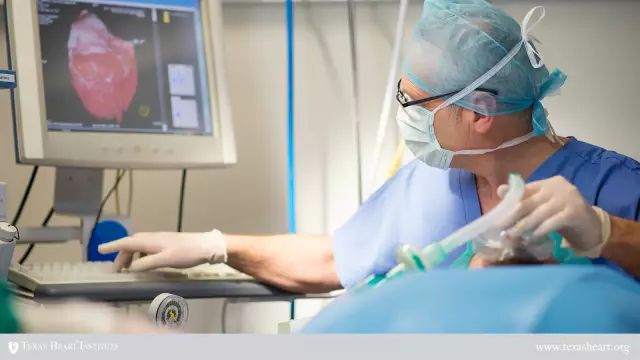- Author Rachel Wainwright wainwright@abchealthonline.com.
- Public 2023-12-15 07:39.
- Last modified 2025-11-02 20:14.
Bacteriologist
A bacteriologist is a specialist who studies the causes of infectious diseases, their antigenic, genetic and morphological properties. The bacteriologist examines environmental objects, materials of healthy and sick people.

Stages of preparation of bacteriological cultures
The human body is home to many microorganisms, both useful and pathogenic. 99% of all bacteria are useful microorganisms - selfless human helpers. They represent the permanent intestinal microflora. Basically, these are bacteroids and bifidobacteria (90-98%). However, there are accompanying microorganisms - enterococci, E. coli, lactobacilli (1-9% of the total number of microorganisms). Under certain conditions, all bacteria, except for bifidobacteria, can cause various diseases.
Variable intestinal microflora is represented by opportunistic microorganisms - staphylococci and various fungi. Their number and composition are constantly changing. To recognize the causative agent of a particular infection, the bacteriologist prescribes certain laboratory tests. It is the bacteriologist who decides which method of laboratory research to choose in each specific case. The accuracy and correctness of further diagnosis directly depends on the correctness of the chosen research tactics.
The most common method for detecting the cause of the disease is bacteriological culture. The so-called biomaterial is taken from the patient - blood, urine, feces, semen and prostate secretions (in men), secretion of the cervical canal and a smear from the vagina (in women), saliva, discharge from the throat and nose, cerebrospinal fluid, wound discharge.
Bacteriological crops are divided into the following types:
- study of biological material for sensitivity to antibiotics and flora;
- research for the presence of fungi;
- sowing on demodex.
The biomaterial is placed in a special broth - a nutrient medium. In such a crop, microorganisms multiply rapidly, which greatly facilitates the identification of the causative agent of the infection.
Using bacteriological methods, the bacteriologist often examines the so-called beneficial microbes of the digestive tract, which take part in the digestion process.
The main duties of a bacteriologist
A bacteriologist is obliged to know questions of private and general microbiology and epidemiology, the mechanisms of immune reactions, the doctrine of infection. He should be well versed in serological research methods, modern methods of microbiological diagnostics, in the content and sections of bacteriology, the main issues of the clinic and pathogenesis of bacterial infections, as well as in the principles of planning the activities and reporting of laboratory bacteriological services.
A bacteriologist should also not only carry out bacteriological research in connection with the professional duties assigned to him, but also participate in the study and further implementation of modern methods of bacteriological laboratory research and equipment. In addition, the bacteriologist should make recommendations for the staff of medical institutions.
It is the bacteriologist who determines the volume and nature of the biomaterial for research, as well as the timing of taking the material and the timing of sampling. He organizes the collection of biological material and its delivery to the laboratory. The bacteriologist determines the transportation conditions and storage method for the biomaterial for research. Next, the doctor conducts a microscopic examination of the material obtained, and then determines the appropriateness of using one or another method or method of inoculation. After sowing, he studies the qualitative and quantitative indicators of the grown crops. By isolating pure cultures of bacteria, he selects the necessary tests to determine their taxonomic position.
For diagnostic purposes, a bacteriologist must be able to easily identify the generic affiliation of various microorganisms - Shigella, Salmonella, Klebsiella, Proteus, Hafnium, Neisseria, Bacillus, Pseudomonas, Corynebacteria, Micrococci, Streptococci, Staphylococci, Clostridia, Vibratory Serrations, Diarrhea and especially dangerous infections.
According to the data obtained during the study, the bacteriologist draws up an antibiogram, and then, using the patient's blood serum, he conducts reactions to identify the antibody titer.
Having completed the study of the material, he decontaminates it, after which he gives a reasoned answer and draws up the accounting and reporting medical documentation.
A bacteriologist must be able to reproduce infectious processes in animals, master various methods of immunizing experimental animals in order to obtain specific antibodies and neutralize toxins with antitoxins.
The duties of a bacteriologist also include monitoring the observance of the anti-epidemic regime and safety measures by junior and paramedical personnel, as well as conducting sanitary and educational work among the population.
So the doctor controls foodstuffs, carries out sampling. Based on the results of the study, the bacteriologist draws up an opinion on the sanitary condition of the food products sold and the premises in which the sale is carried out. A bacteriologist doctor checks the sanitary condition of people associated with food. He carries out flushes from inventory, hands, equipment and containers. After conducting the research, the bacteriologist takes measures for the possible removal of trade workers.
The doctor controls all medical institutions, hairdressers, baths, nail salons, food markets, restaurants, children's dairy kitchens, cafes, canteens, bars and other catering establishments.
Based on the knowledge gained, the bacteriologist can conduct a bacteriological study of centralized water supply, swimming pools, reservoirs, sewage, as well as air and soil.
Found a mistake in the text? Select it and press Ctrl + Enter.






